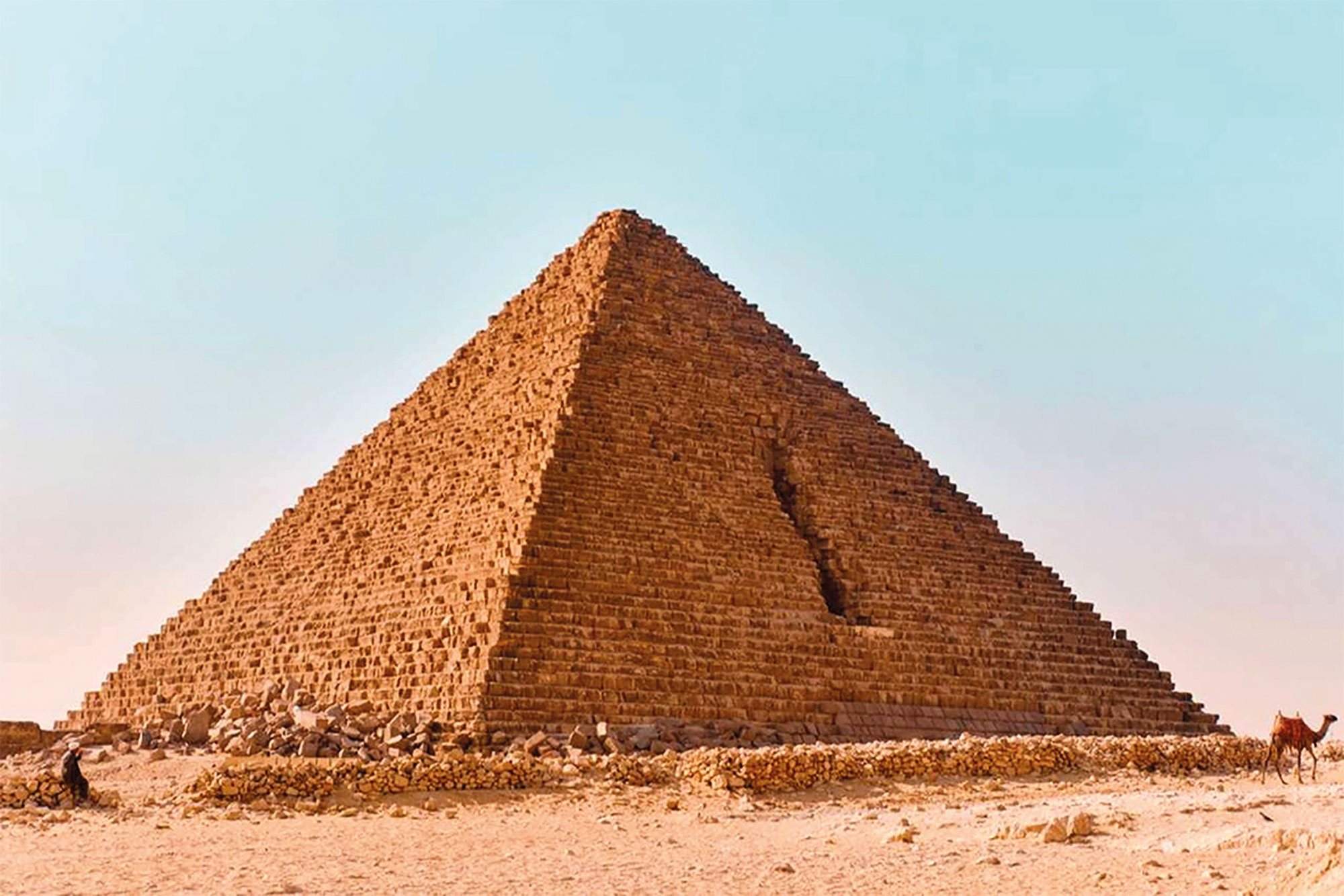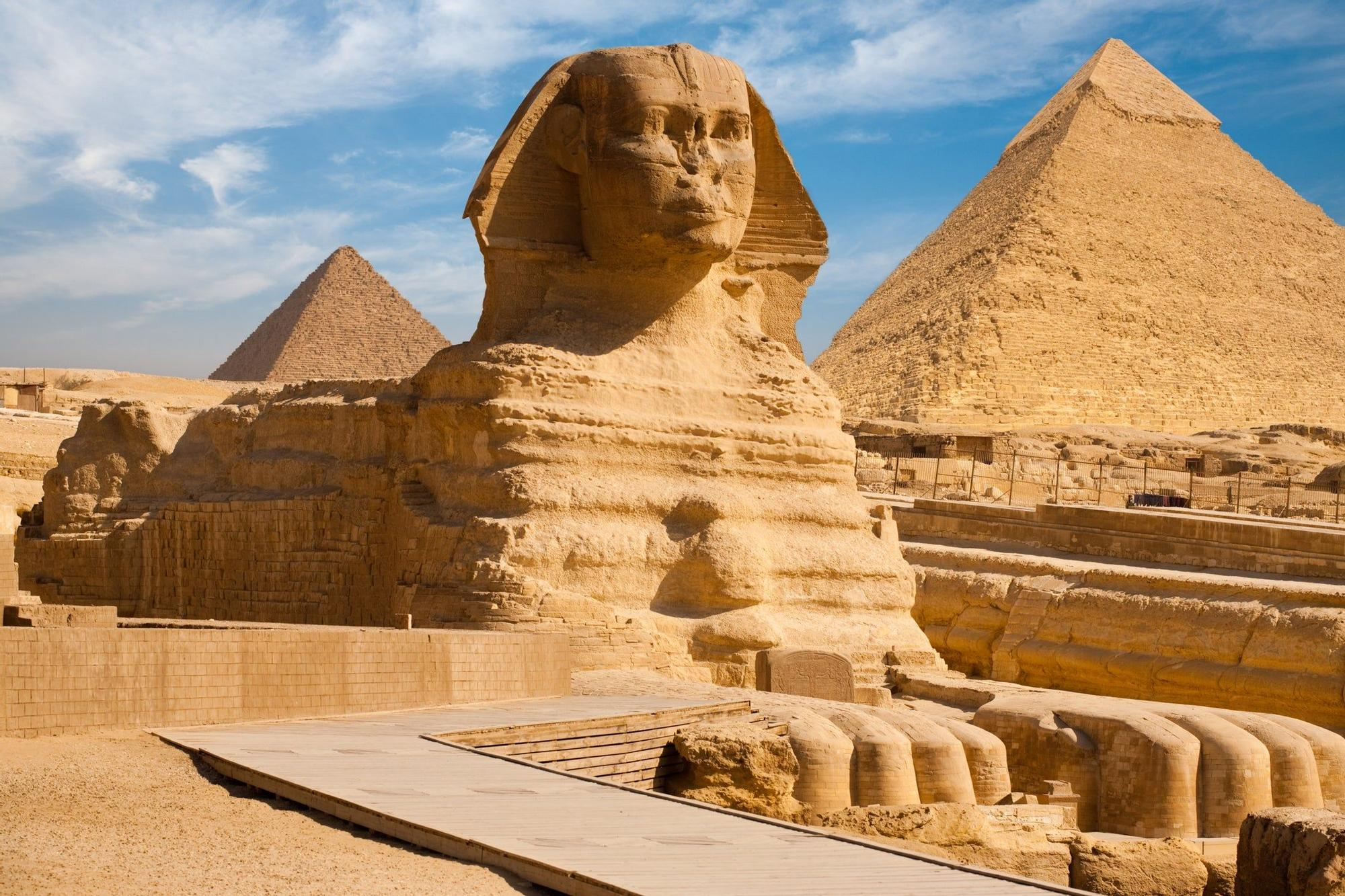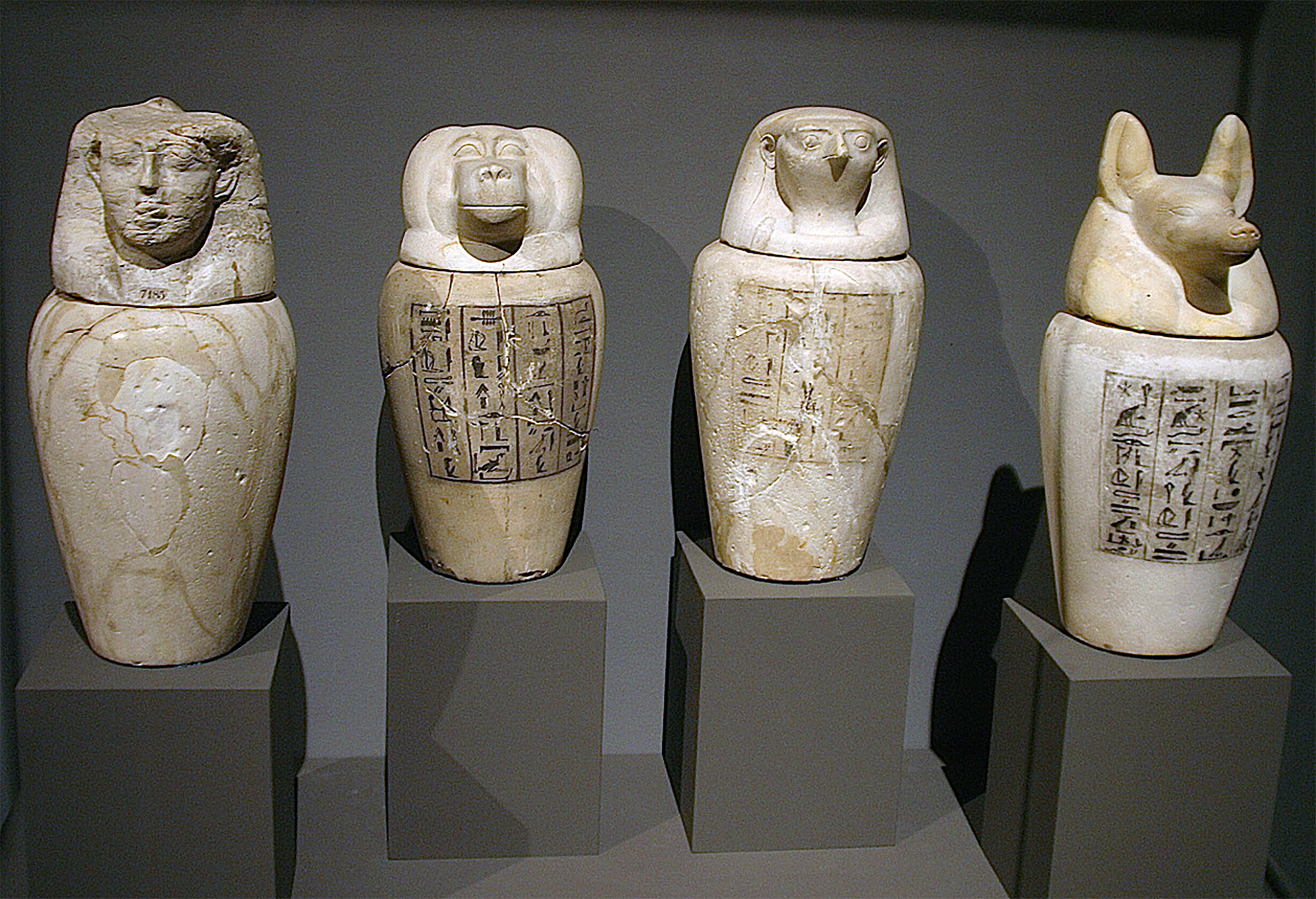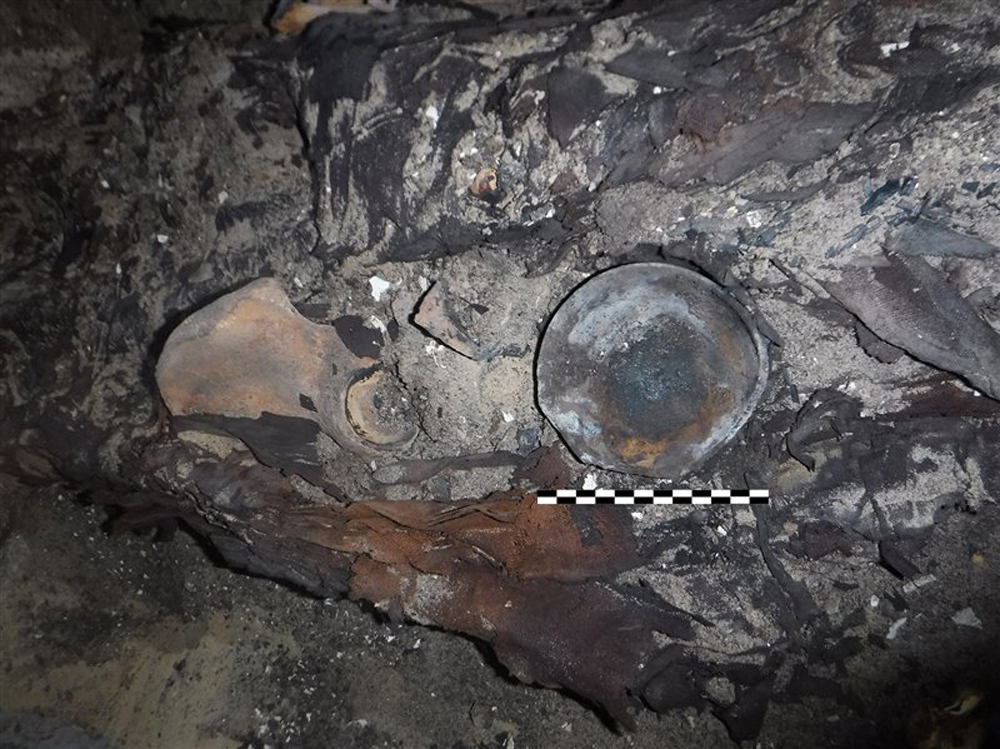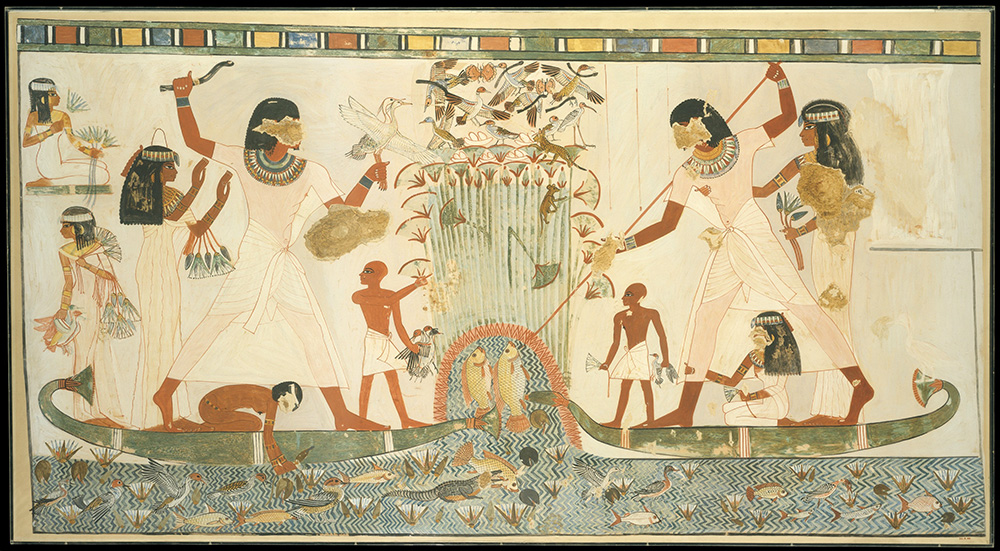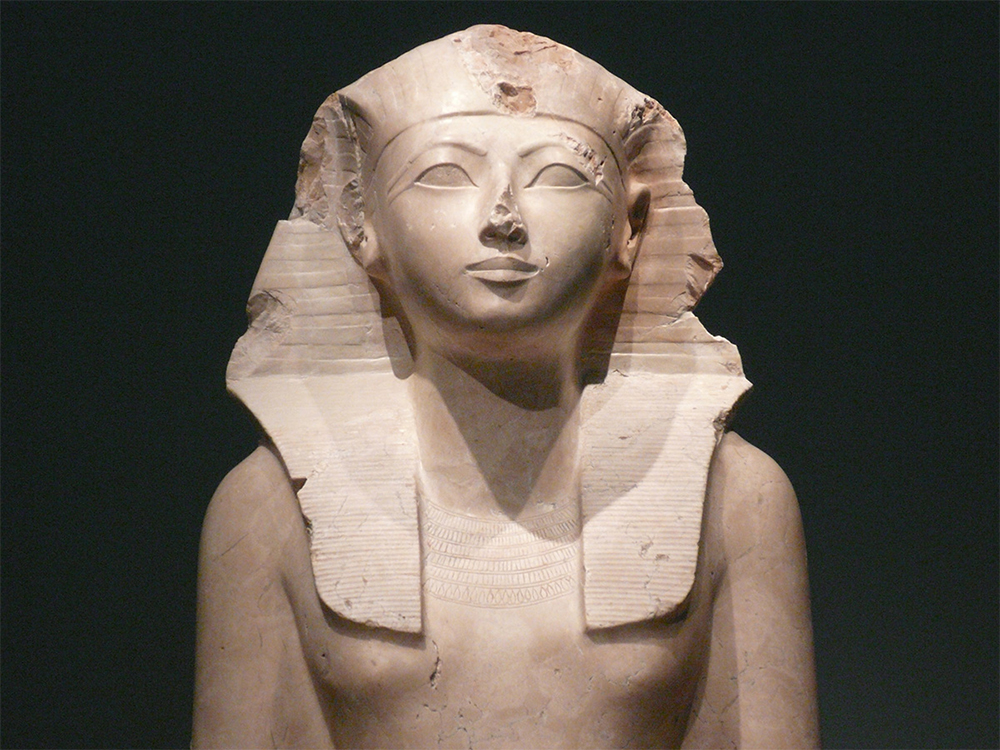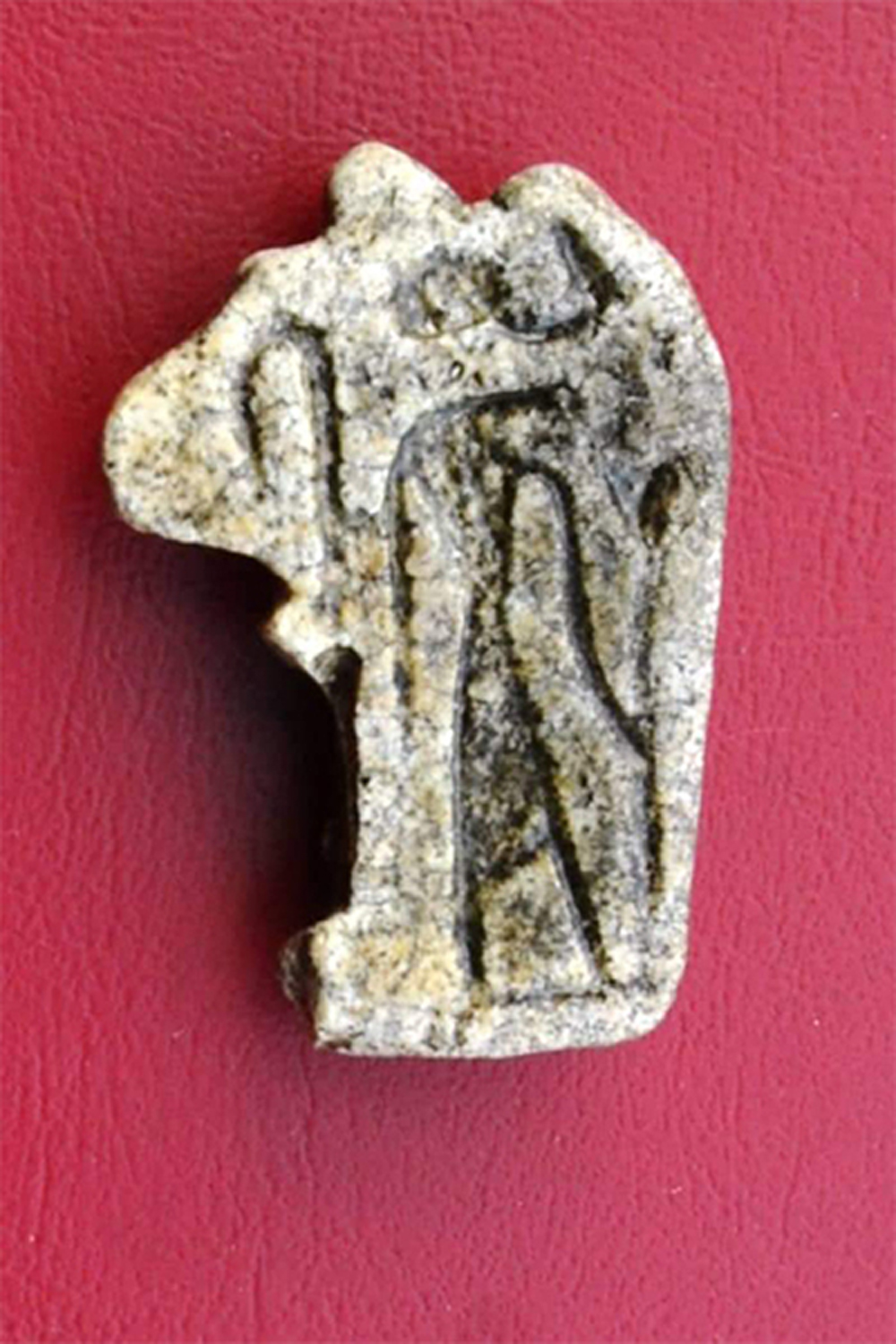"Until we find something we always walk in the line between fiction and reality"
- A team of archaeologists uncovers the traces of a city built about 3,400 years ago in Luxor, Egypt, on one of the banks of the Nile River. Amenhotep III is the city of Pharaoh's time (c.a. ). 1390-1352), his son, whom Pharaoh Akenaton left behind to found a new capital. María Luz Mangado (Pamplona, 1967) believes that the discovery can help explain the causes of this political breakdown and to know the daily lives of ordinary people then.

How does one become an Egyptologist?
I liked history and archaeology. While I was studying, my parents gave me a trip to Egypt. I really liked it and I had the opportunity to meet many specialists. I followed that path, learning outside, and I became more and more fond.
From Pamplona to Ancient Egypt there are many years and miles.
But the wealth of Egypt is so great... I knew it was a difficult learning, for many years, among other things because you have to master several languages, copto, hieratic... I think education has helped me. I really like working on excavations, also in museums and archives.
What about the history of Egypt that seduces us so much?
In its history there is a political, artistic and cultural greatness, and the architectural heritage that we have been left with is spectacular. It was able to develop various fields, such as architecture, sculpture, astronomy... and it is a great heritage abandoned for all of this, in Mediterranean cultures and especially in the Greek Corrosive world. This monumentality, situated in that landscape, with that light, with the Nile River ... It has a very special beauty.
Are you still surprised by discoveries like Luxor?For me
it falls within normal, it is so extraordinary always, that any result gives you something. It is true that in this case it is a whole city, and that will help us a lot to learn about people’s everyday lives. This seduces us, because we're always circling the lives of kings, but the lives of younger people are also extraordinary. It will give us a lot of information about the organisation of society.
What does an Egyptologist see where there are rocks?
You can rebuild the houses and study the distribution of space. The necropolis has been researched a lot, but the cities have not found so much, and this is going to give a lot of light. Death is what we know best, but this will also help us understand life. The analysis of social and economic organization can help us to understand the grandeur of some times, and the decline of others. Literature gives us a lot of information, but when archaeology confirms it, it's wonderful.
.jpg)
After Tutankamón, it has been said that Luxor is the most important discovery in history. Is that the case?
All the discoveries together offer something. Each, as he advances in it, always believes that his is his greatest discovery. It is true that the discovery of Tutankamón has a special history. It was exciting and we still have a lot to do. This time it is from the same time and will also help to clarify the history of Tutankamón. Because it's going to help know why Akenaton [Tutankhamun's father] left there. It's a good time in the history of Egypt, but still a bit dark.
Is it clear that it is an
abandoned city, covered by the sand. Its state of preservation is excellent and is not common. The investigation says, we know it was a rupture, which was abandoned by Akenaton, probably due to the excess power of the priests of Thebes, and which founded a new city in Amarna, mainly to worship the god Aton. It is well documented in the religious sphere, but the historical-political reason is not very clear. And the most amazing thing is that fracture was still a bright time, there was no decay. There's a lot of interest because it's key in the history of Egypt.
They seem to have found it by chance.
They were looking for the funeral temple of Tutankhamn and they found it by surprise. There was news in literature and in texts, but until we found something we always walked the line between fiction and reality. It's a great satisfaction for archaeologists.
This shows what remains for descubrir.Nunca you can
close the door: if tomorrow you find a pharaoh's tomb, until yesterday we had so many pharaohs and today one more. The greatest value in Egyptian history is that it's been constant, not exclusive. Even when the peoples of the outside invade Egypt, they discover their grandeur, they make their culture their own. The Tolomeos and the Romans were also aware of this. That is why we know what we know today.
But it has also been a very polite people. Should all the pieces be returned to Egypt? It
is a difficult subject which, unfortunately, happens in all ancient cultures. The protection of heritage was not valued in the same way a century ago: what was done today is poorly seen, but then perhaps it served to save some pieces. It is clear, in any case, that some facts are excessive, and I understand that some parts are being claimed. I think we need to look at it in each case. The 19th and 20th centuries have lights and shadows, and also some archaeologists fought for heritage to stay in Egypt and others brought boats out of the country.
of Navarra and continued in Barcelona, where I studied Master's and PhD. Later I have continued to learn in different places: Italy, Paris, United States, Belgium, Egypt, Denmark... I've spent long distances on excavations in Egypt, for a few years I've been up to four times. I've been studying in Jerusalem lately. I have worked mainly in two areas: The culture of the wine of Antiquity and of the mummies of animals. My personal history is closely linked to my professional life, because work requires many hours and influences everything.”
Luxorren, Erregeen Haranetik gertu, hilobi garrantzitsu baten sarrera eta pasabide nagusia aurkitu zituzten 2022an. Orain, alabastrozko objektu batean Tutmosis II.aren kartutxoa topatu dute (irudian). Horrek esan nahi du hilobi hori XVIII. dinastiako faraoiarena... [+]
Mostafa Waziri, Secretary General of the Upper Ancient Council of Egypt, recently presented the gigantic restoration project of the Mizerino pyramid: They will cover the man's smallest pyramid with granite blocks to regain its original appearance. Although Waziri has... [+]
Researchers at the Conservation Centre of the Egyptian Museum of Cairo have found that Eutrema japonicum or Cochlearia wasabi radish is suitable and effective for the cleaning and conservation of papyrus. That is, the wasabi used mainly in the Japanese kitchen, for its... [+]
Nilometroak Nilo ibaiaren ibilgu naturaletik hurbil eraikitzen zituzten era askotako eskalak ziren: eraikin konplexuak ziren batzuk, beste batzuk putzu soilak edo harrian zulatutako eskailerak. Antzinako Egipton, basamortua zeharkatzen duen Nilo ibaia funtsezkoa zen nekazaritzan... [+]
Hiru kontzeptuok aztertu eta antzinako egiptoarren sinesmenekin lotu ditu Brown unibertsitateko (AEB) Victoria Almansa Villatoro egiptologoak (Journal of Egyptian Archaeology).
Egipto, K.a 2162 edo 2191. Nitokris faraoiaren bi urteko erregealdia amaitu zen eta, hala, VI. dinastia amaitu eta Egiptoko lehen tarteko aroa hasi zen.
Nesiamon duela 3.000 urte inguru Karnakeko Amonen tenpluan jardun zuen apaiz egiptoarra izan zen eta haren momia Leedseko (Ingalaterra) museoan egon da 1823az geroztik.












